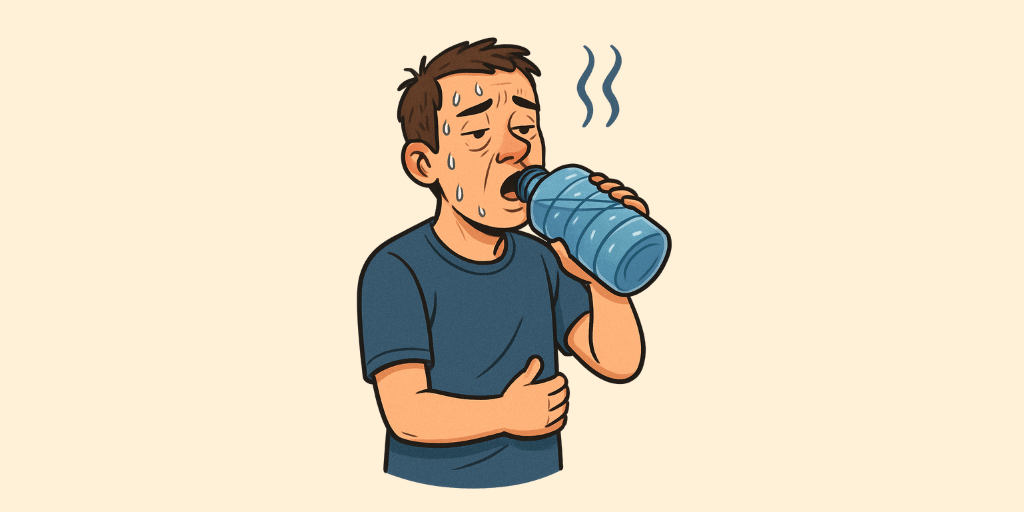Ayurvedic Name: Trishna
Description:
Trishna refers to excessive thirst, which can be due to Pitta aggravation, dehydration, fever, or underlying metabolic disorders like diabetes. It is often accompanied by dry mouth, dizziness, burning sensations, and frequent urination. Ayurvedic treatment includes cooling and hydrating herbs like Amalaki, Chandana, and coconut water to pacify Pitta and restore fluid balance.
Signs & Symptoms:
- Vilambika (Chronic Indigestion): Persistent difficulty in digesting food, leading to discomfort.
- Agnimandya: Long-term low digestive fire causing frequent indigestion.
- Ama: Toxin buildup from undigested food leading to a feeling of fullness.
- Vata Dosa: May cause irregular digestive movements, contributing to chronic indigestion.
Diagnosis:
Blood Glucose Test
Risk Factors:
- Dietary Factors: Excessive consumption of salty, spicy, or fried foods can lead to dehydration and increased thirst. Additionally, drinking alcohol or caffeine-rich beverages, which have diuretic properties, can further dehydrate the body, causing an increase in thirst. Eating foods that are difficult to digest, or that contain artificial additives, can also disturb the body’s hydration balance and lead to excessive thirst.
- Lifestyle Factors: Prolonged exposure to hot or dry environments can increase water loss through sweat, leading to dehydration and a heightened sense of thirst. Physical activity without adequate water intake or excessive exertion can cause the body to lose more fluids, resulting in thirst. Stress and emotional strain can also interfere with the body’s natural hydration regulation, making the individual feel thirsty more frequently.
- Medical Conditions: Medical conditions such as diabetes mellitus or kidney disorders can increase the risk of Trishna. In diabetes, elevated blood sugar levels cause the body to excrete more water through urine, leading to dehydration and excessive thirst. Kidney diseases can affect the body’s ability to regulate fluid balance, causing the individual to feel more thirsty. Additionally, conditions like hyperthyroidism or electrolyte imbalances can also disrupt the body’s hydration mechanisms, leading to Trishna.
Complications:
- Thirst (Trishna): Excessive thirst as a result of dehydration, loss of electrolytes, or hormonal imbalances.
- Urinary Issues (Mutrata): Frequent urination or discomfort during urination due to excessive fluid intake or underlying conditions.
- Dry Mouth (Khali Mukha): Dehydration and insufficient saliva leading to a dry mouth, increasing thirst sensation.
Epidemeology:
Trishna (Thirst) is commonly observed in individuals with dehydration, kidney disorders, or diabetes. It is also linked to excessive consumption of salty or spicy foods and conditions that lead to fluid loss, such as fever or excessive sweating.

